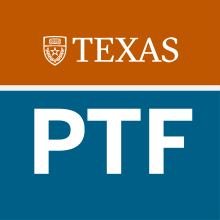Individual Fellow Initiatives

Implementing Computational Modules into the Materials Science and Engineering Undergraduate and Graduate Curricula
The development of increasingly powerful computational resources has made computational competencies new core forms of literacy that should be formed as part of basic education across all STEM fields.

Early Exposure to Data Skills in Introductory Biology Sequence
Biology continues to be seen as a field for science-interested, but math-disinterested students. However, due to the surge in data use in all biology careers, and the focus in research on sequence data, there is a strong need for data skill development in biology degree programs. Math anxiety poses a specific challenge for biology education. A suggestion to overcome this, is an early introduction to data skills in the two-course sequence of Introductory Biology.

Peer Mentor Leadership Project
The Peer Mentor Leadership Project (PMLP) empowers undergraduate students to explore and develop their leadership styles. Participants design and implement mentoring and leadership projects that align with their goals and values, while assessing the impact of their work. The program emphasizes introspection, reflection, and professional growth, helping students strengthen their resumes and leadership skills.

Making New Scientists: Supporting the Training of Incoming Science Majors
Traditional science degree programs concentrate primarily on content and are not known for preparing their graduates with other skills needed for scientific careers.

Personal Financial Literacy Among UT Undergraduates
Everyone needs to understand personal finance. Sadly, a large body of research indicates that most American adults fail basic tests of personal financial literacy. This project aims to determine whether there is sufficient personal financial literacy education on campus, and, if not, how that problem can be corrected.

Valuing Humanities Education at the University of Texas
For some time now the humanities have been “in crisis,” but the crisis is becoming acute: majors in nearly all humanities fields have been sharply declining, enrollments are down, hiring of tenure-track faculty is down, and, at some colleges and universities across the United States, whole departments are being eliminated. Here at the University of Texas, majors that are growing seem to be ones that promise a literal return on investment (invest money in a degree and get that money back, in the form of a well-paying job upon graduation) or at least suggest an obvious and practical use.

Data Analysis Tools: Integrating Computational and Statistical Techniques in the Environmental Engineering Curriculum
The goal of this project is to train the next generation of environmental engineers in computing and statistical techniques to solve big data problems. Current undergraduate students in the Department of Civil, Architectural and Environmental Engineering have little to no exposure to computational and statistical methods for data analysis (e.g., big data collected from sensor networks). I proposed to integrate computational techniques in several courses throughout the Environmental Engineering Degree.

Teaching the University: Enhancing Student Understanding and Appreciation of the University
My project is intended to address a lack of understanding among most undergraduate students of the university both as an institution and as a space in which intellectual life is pursued. This lack of understanding among undergraduates is intertwined, I believe, with a broader lack of appreciation for higher education/academia in our cultural and civic life.

Nutrition in the Kitchen
Compounding the challenge of consuming a healthy diet is the fact that many students have little or no familiarity with preparing their own food. The result is inadequate diets that do not support optimal health and academic performance.

Professional Development for Undergraduate Students Majoring in the Biological Sciences
I seek the opportunity to create a professional development curriculum that would provide students a structured vehicle for developing professional confidence and self-awareness, and facilitate early success in an increasingly competitive ‘real-world.’ My desire to work on this idea as a Provost Teaching Fellow stems from the overwhelmingly positive student response to professional development activities that I have incorporated in several of my courses.

McCombs Student Journal
The McCombs Business Journal was an effort to give students an opportunity to read and write about research. We recruited students, worked with the students to establish an organizational structure, set expectations for members, and selected student leaders. Students read a significant amount of research and wrote summaries, focusing on how that research impacts the real world.

Clinical Advancement in Simulated Environments
Among the communication disorders considered to be fundamental to the scope of practice for speech-language pathologists, stuttering or what is also commonly referred to as a fluency disorder has historically been and continues to be the disorder for which most speech-language pathologists report minimal to no clinical or academic exposure and/or competency.

